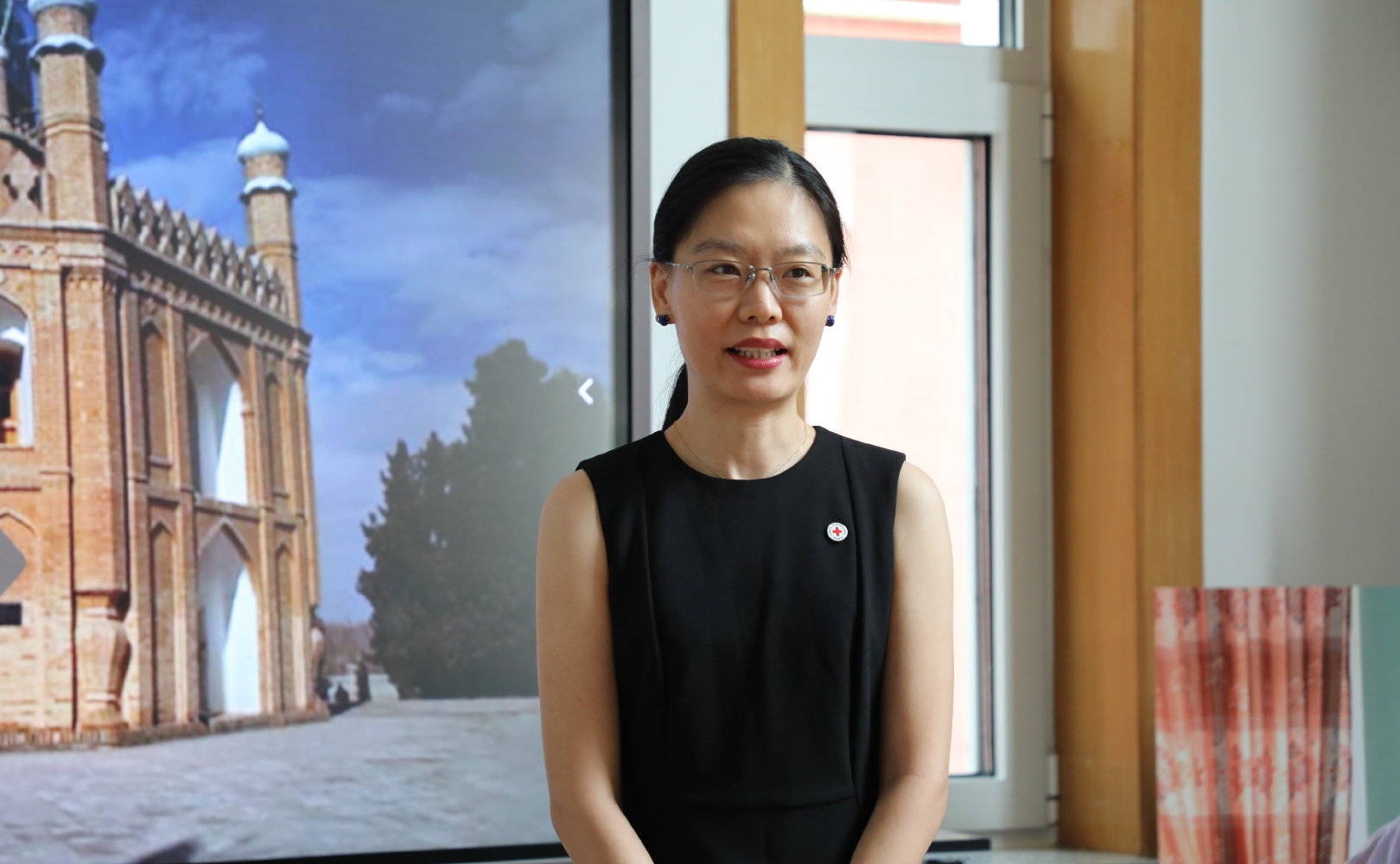 An Na, a Chinese gynecologist, shares her working experience as a foreign aid doctor in Afghanistan during an event held by the International Committee of the Red Cross (ICRC) on Aug. 19, 2020. (Photo: ICRC)
An Na, a Chinese gynecologist, shares her working experience as a foreign aid doctor in Afghanistan during an event held by the International Committee of the Red Cross (ICRC) on Aug. 19, 2020. (Photo: ICRC)
The Mirwais Regional Hospital in the city of Kandahar in Afghanistan was built by China in the 1970s, acquiring the moniker "Chinese hospital." It welcomed its first Chinese doctor in the summer of 2019.
An Na, a Chinese gynecologist, went to work at the hospital in August 2019 as part of a foreign aid program run by the International Committee of the Red Cross (ICRC). Besides being attached to the hospital's obstetrics and gynecology department, she helped train local medical staff.
Working at a tertiary hospital in Beijing, An chose to become a foreign aid doctor in 2011. Before Afghanistan, she was stationed in several Asian and African countries, including Pakistan, the Philippines, Sierra Leone, Somalia and Ethiopia.
The Mirwais Regional Hospital serves more than 5 million people in southern Afghanistan. "Working there, I have encountered many situations that I would not ever come across at home," An said.
She once received a pregnant woman with severe preeclampsia who needed an emergency C-section, while her husband was admitted in the trauma ward for amputation of both feet and one hand due to a landmine explosion. She helped the family apply for financial aid and rehabilitation programs by the ICRC.
"While working in Afghanistan, I not only treat patients, but also work with the ICRC to help their families," she said.
The Mirwais Regional Hospital is not the only "Chinese hospital" in Afghanistan. The Jamhuriat Hospital in Kabul was also built with China's aid.
Over the years, China has also provided material and financial assistance to help Afghanistan develop its education and infrastructure sectors. After the spread of COVID-19 in Afghanistan, China started donating anti-epidemic materials and sharing its experience of epidemic prevention.
During the pandemic, An decided to stay there in March to support the normal functioning of the hospital, helping the obstetrics and gynecology department establish its COVID-19 prevention mechanism.
An recalled treating a pregnant woman with acute fatty liver, who lost her twins because she was not treated in time due to the COVID-19 pandemic.
"So it is very important to keep hospitals functioning normally during the pandemic, especially in areas with scarce medical resources," An said. "Though I was under a lot of pressure at the time, it was all worth it."
As the only Chinese doctor in town, An was surprised by local people's love for China. "They told me they appreciate China's help, and hope Afghanistan will be as developed as China one day," she said.
Starting as a foreign aid doctor out of her love for travel, An has become inseparable from her job. Just over a month after returning home, An is already planning her next trip.


